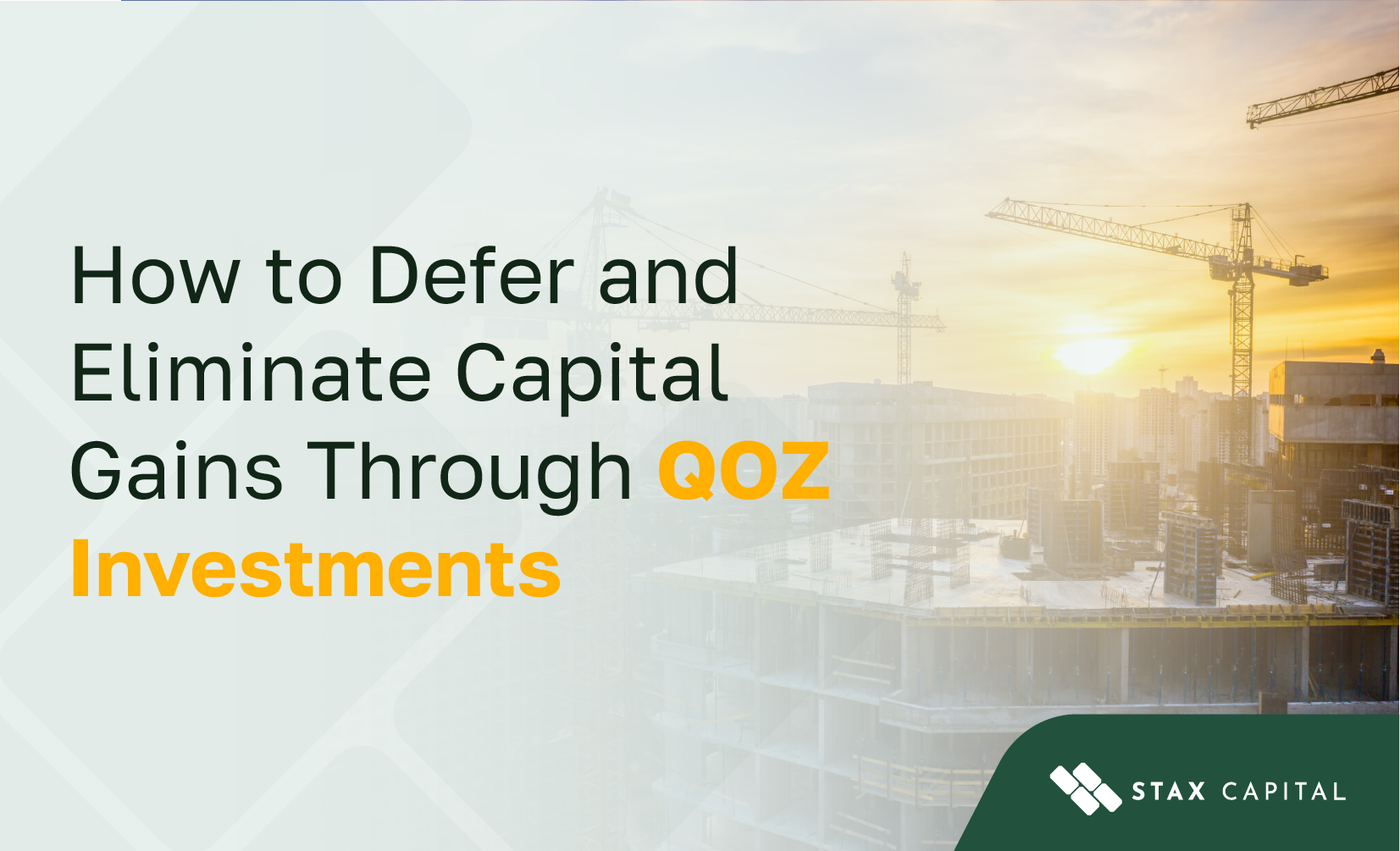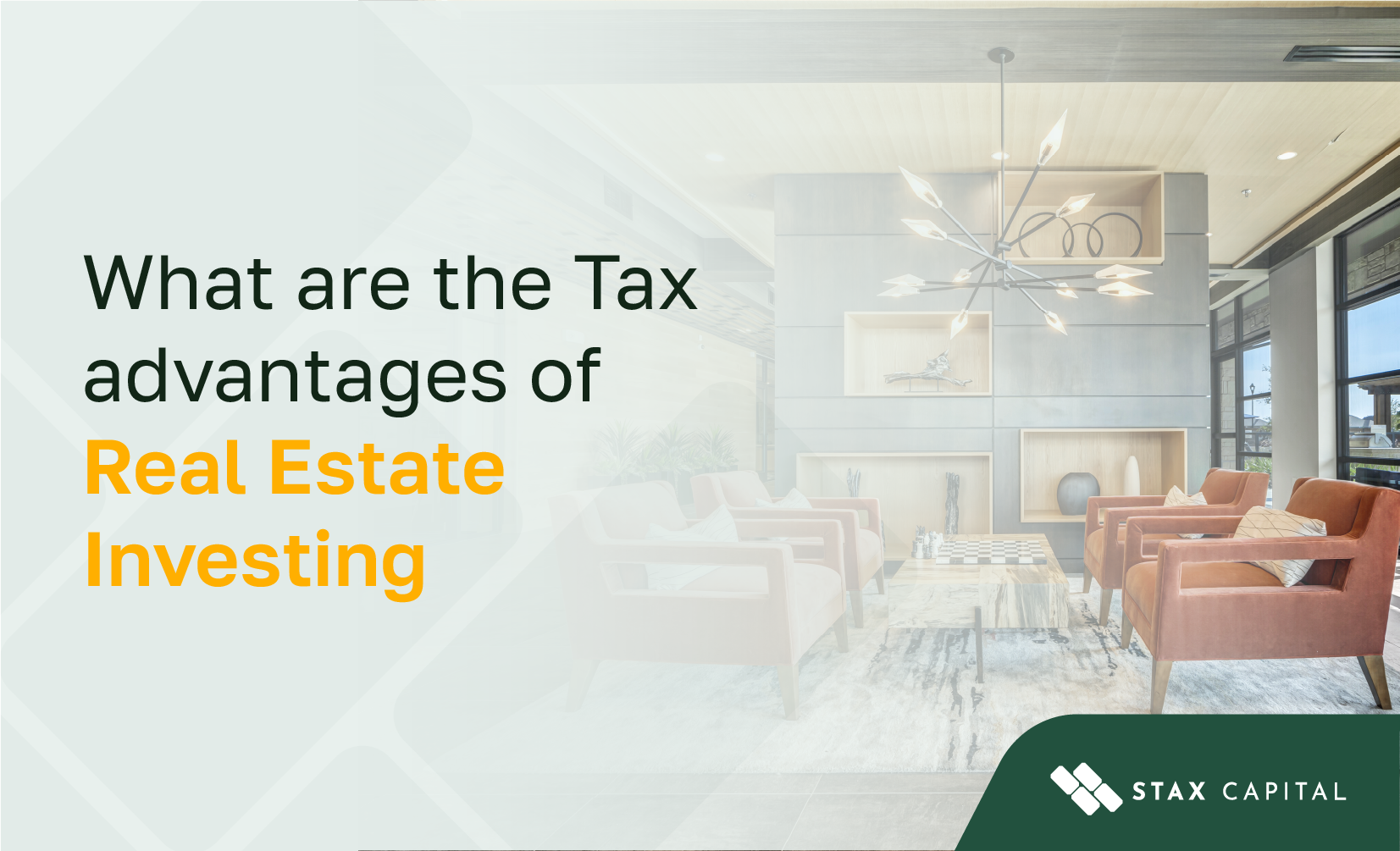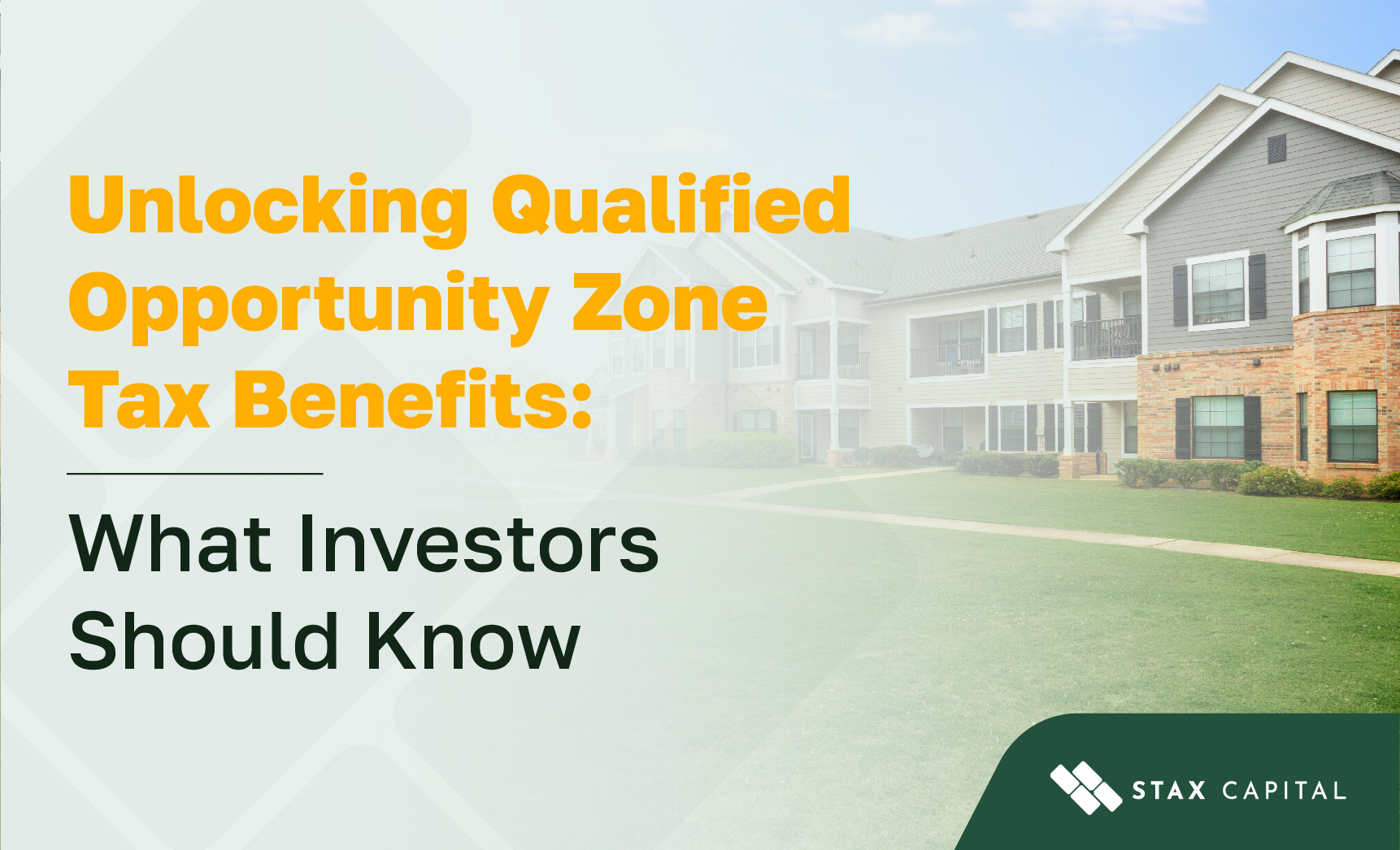Capital Gains Tax Benefits - Opportunity Funds vs 1031 Exchanges

Capital gains in the United States are subject to tax when realized. As a real estate investor, this includes capital gains realized on property sold or exchanged. If you have sold or exchanged property resulting in any capital gains, you would be expected to report such gains in your tax return. However, you may be able to elect for a capital gains tax deferral if you opt to reinvest in like-kind property or designated opportunity zone communities.
Two popular property investment vehicles that encourage long-term real estate capital investments are the 1031 Exchange and the Qualified Opportunity Fund (QOF). They spur up investments by providing capital gains tax incentives on the sale or exchange of property investments. The underlying concept behind 1031 exchanges and QOFs is the opportunity to defer taxes when capital gains from property sale are reinvested in property using either of these vehicles.
Qualified Opportunity Funds and 1031 exchanges operate with different requirements. While they arguably serve diverse purposes, the tax advantage associated with these two investments vehicles spur up real estate investments. Here's what investments in QOFs and 1031 exchanges entail.
1031 Exchanges
The 1031 exchange gets its name from the Internal Revenue Code (Section 1031), which introduced a tax incentive for property capital gains when reinvested in a like-kind property. This type of investment is sometimes referred to as a 1031 like-kind exchange. When considering real estate investments through 1031 exchanges, it is important to be aware of the underlying rules that make your transaction qualify for capital gains tax deferral. Any mistakes may disqualify your property exchange transaction from being considered as a 1031 like kind exchange.
When you make a property sale, you’ll need to identify the reinvestment property within 45 days from the sale or exchange of your relinquished property. The new property or properties would need to be of like kind nature with the relinquished property. You will also be expected to make this reinvestment within 180 days from the sale of your relinquished property.
An important part of the 1031 exchange is using an intermediary to facilitate the exchange of properties as this cannot be done directly.
An important factor in a like kind exchange is the value of properties being exchanged. If the sale proceeds of the disposed property exceed the fair market value of the new property or if there is any exchange that is not considered like kind in nature, this can result in capital gains being realized. These capital gains would be subject to tax.
Qualified Opportunity Fund
The tax incentive through investments in a Qualified Opportunity Zone was introduced by the Tax Cuts and Job Act (TCJA) in 2017. Real estate investors can contribute to economic development by investing in Qualified Opportunity Zones (QOZs). In return, investors get tax advantages on eligible capital gains invested in these distressed communities.
When you invest capital gains in a Qualified Opportunity Fund, you may be eligible for tax deferral subject to all requirements being met. One key requirement is that the investment of capital gains must be made within 45 days from the date which the property is disposed and gains are realized. Also, it is important to note that the ownership interest in QOFs should be equity and not debt. For qualified investments in a QOF, capital gains tax can be deferred until the earliest of when sold or by December 31, 2026.
Aside from a capital gains deferral, you may be able to reduce taxes on capital gains by 10% if you hold an investment in a QOF for at least 5 years. If your holding in a QOF is held longer for at least 7 years, your capital gains tax may be reduced by 15%.
The great part about property investments in a QOF is that investors may be eligible for a total tax elimination on capital gains realized from the disposal of your qualified investment in a QOF.
Opportunity Funds or 1031 Exchanges? Factors to Consider
While the best capital gain reinvestment decision would depend on specific situations and the best optimal wealth management strategies, here’s what to consider when exploring capital gains reinvestments in either a 1031 like kind exchange or a Qualified Opportunity Fund.
Flexibility:
The flexibility of investing in either a Qualified Opportunity Fund or a 1031 exchange varies and may suit different investment goals. Investments in Qualified Opportunity Funds have to be in communities designated as QOZs while for 1031 exchanges, properties exchanged need to be of like kind in class and nature. As an investor, whatever option you decide to invest through would be limited based on these restrictions.
Also, Investments in QOFs are more flexible and can be done directly without the need for an intermediary. 1031 exchange investments on the other hand require the use of an intermediary. A property reinvestment is only deemed a qualified transaction for a 1031 exchange when property exchanged is carried out through a third party called a facilitator or an intermediary. The facilitator is responsible for collecting and transferring the sale proceeds as well as the reinvestment property.
Tax deferral:
While capital gains investments in 1031 exchanges and Qualified Opportunity Funds provide incentives for tax deferral, tax deferrals for QOFs are time sensitive. Tax deferrals from reinvestments in QOFs are on the earlier of a sale or exchange of a qualified investment or December 31, 2026. There are therefore uncertainties around this benefit for investors who need to hold their investments for longer.
In comparison, an eligible tax deferral on 1031 exchange investments comes into effect at any time of disposal of the reinvested property.
Tax elimination:
There is the possibility of tax elimination with investments in Qualified Opportunity Funds. This elimination may only be applicable after 10 years of holding qualified investments in a QOF and it is applied on the capital gains from sale of the interest in a QOF. An investment in property through a 1031 like kind exchange would usually not allow for tax elimination of gains after property sale or exchange.
Timeline:
One of the key rules for a capital gain reinvestment in property to qualify as a 1031 like kind exchange is that the new property has to be identified within 45 days after the sale or exchange of the disposed property. In addition to this rule, the sale or exchange of properties needs to be done within 180 days from the sale or exchange of the disposed property.
The requirements for investments in Qualified Opportunity Funds does not include a property identification timeline , however, the Internal Revenue Service (IRS) requires that reinvestment of capital gains are done within 180 days from when they are realized.
Reinvestment value:
The basic rule for capital gains reinvestments to qualify as a 1031 exchange is the reinvestment in like kind property. Any reinvestments in property that does not qualify as like kind or property with market value below the relinquished property may result in gains that are subject to tax. In this case, the entire principal and capital gains from a property sale may need to be fully reinvested to benefit the full tax deferral advantage.
For Qualified Opportunity Funds, there is no requirement to reinvest the principal from property sale. You can benefit from the tax deferral incentive that comes with investing in a Qualified Opportunity Zone by only reinvesting the capital gain from your disposed investment.
Capital gains:
Capital gains deferral through a DST are realized through property sale or exchange, while capital gains deferred through a QOF can be gotten through other forms of investment like stocks or bonds. This provides more opportunities for investors looking to manage their capital gains tax from a broader range of investment portfolios.
Final Thoughts
Qualified Opportunity Funds and 1031 exchanges provide means for managing capital gains tax. Both vehicles have tax advantages when certain rules and requirements are met. A 1031 like kind exchange may qualify for tax deferral and a holding in a QOF can lead to capital gains tax deferral, reduction or even elimination.
The decision to use either a 1031 exchange or a QOF is dependent on specific investment goals as well as preference. You can choose one vehicle over the other based on the flexibility of your investment transactions or the location of investment property that suits your preference.
Also, this decision may be made based on the need to take advantage of possible tax reductions or the elimination of property capital gains. Both investment vehicles are available to accredited investors who are deemed financially sophisticated and are willing to invest in non-publicly traded investments. The nature of investments in QOFs vs 1031 exchanges make them complicated alternative investments and thus require assessment and advise from tax experts or investment advisors.
Finding the best investment partner as a real estate investor is very important. The best investment partner is one that works with you to understand the different investment options you have and provide effective investment strategies to help you reach your goals. Stax Capital provides years of experience and professionalism in alternative real estate investments. You can explore property investments through a 1031 exchange with Stax Capital. The Delaware Statutory Trusts vehicle offered by Stax Capital qualifies as 1031 like kind exchange through which you can reinvest your capital gains from property sale. We also offer real estate opportunities through Qualified Opportunity Funds that may be eligible for capital gains deferral, provided all requirements are met.



Share: